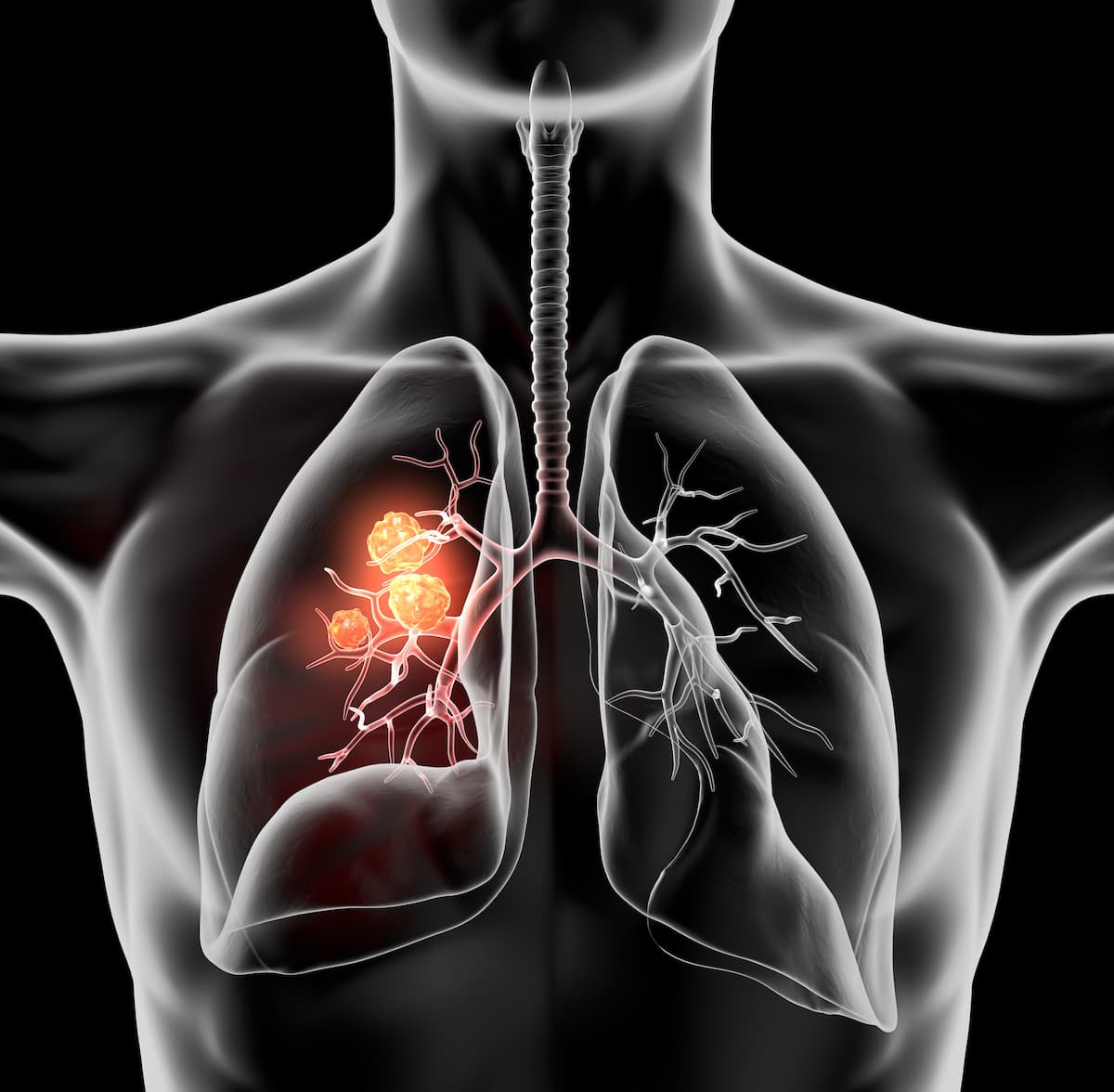BDTX-1535 Yields Radiographic Responses in Small EGFR+ NSCLC Population
The fourth-generation tyrosine kinase inhibitor yields several partial responses and a tolerable safety profile in a small population of patients with EGFR-mutated non–small cell lung cancer in a phase 1 trial.
BDTX-1535 had a safety profile consistent with other TKIs, with no unexpected safety signals occurring during dose escalation. The most frequent treatment-related adverse effects were mild to moderate rash, diarrhea, stomatitis, paronychia, nausea, and fatigue.

The fourth-generation EGFR tyrosine kinase inhibitor (TKI) BDTX-1535 demonstrated clinical activity among patients with non–small cell lung cancer (NSCLC) who have acquired resistance and intrinsic driver EGFR mutations, according to dose escalation data from a phase 1 study (NCT05256290) published in a press release by Black Diamond Therapeutics.
In a subgroup of 12 patients with measurable NSCLC at baseline, 5 experienced a radiographically confirmed partial response (PR) following treatment with BDTX-1535. There was also an as of yet unconfirmed PR in 1 patient, and the remaining 6 had stable disease. Confirmed PRs occurred in patients with a range of EGFR mutations, including classical and intrinsic driver mutations, acquired C797S resistance mutations, and complex mutations. Moreover, 2 patients experienced a radiographic improvement in central nervous system (CNS) metastasis.
BDTX-1535 had a safety profile consistent with other TKIs, with no unexpected safety signals occurring during dose escalation. The most frequent treatment-related adverse effects were mild to moderate rash, diarrhea, stomatitis, paronychia, nausea, and fatigue.
“Intrinsic and acquired resistance to osimertinib [Tagrisso] remains a significant challenge for patients with EGFR-mutant lung cancers. There is a large unmet need to personalize therapies based on acquired EGFR resistance mechanisms post treatment with osimertinib, but also an equally important unmet need to address intrinsic resistance,” Helen Yu, MD, associate attending physician at Memorial Sloan Kettering Cancer Center, said in the press release. “That is why a fourth-generation EGFR TKI that addresses intrinsic and acquired resistance by effectively targeting these EGFR alterations—combined with ease of administration and brain penetrance—may be an impactful treatment option for patients. I am eager to see BDTX-1535 continue to advance in the clinic.”
These data came from a first-in-human, open-label phase 1 clinical trial assessing BDTX-1535 in patients with NSCLC and glioblastoma multiforme, which includes dose escalation and dose expansion cohorts.
In sum, 51 patients, including 24 with NSCLC and 27 with glioblastoma received BDTX-1535 in the dose-escalation portion of the trial as of May 20, 2023. Treatment was administered daily at 7 dose levels ranging from 15 mg to 400 mg.
Patients with NSCLC had undergone a median of 2 prior therapies (range, 1-9), and all had received prior treatment with an EGFR TKI, most frequently osimertinib (79%), in the first- or second-line setting. Additionally, 67% had received prior chemotherapy, and 42% had received a prior anti-angiogenesis drug or checkpoint inhibitor.
All patients in the glioblastoma population had experienced disease recurrence following standard-of-care surgery, radiation, and chemotherapy.
No dose-limiting toxicities occurred between the 15 mg and 200 mg dose levels. Of the 15 patients treated with a dose of 300 mg, 1 experienced dose-limiting diarrhea, and of the 12 treated with 400 mg, 5 experienced a dose-limiting toxicity.
Based on emerging data, investigators will begin enrolling patients at the 200 mg dose level in 2 NSCLC expansion cohorts, which will be comprised of those with acquired resistance or intrinsic driver mutations who have received no more than 2 prior lines of therapy, including a third-generation EGFR TKI. The objective will be overall response rate.
“With a favorable tolerability profile in dose escalation, a long half-life to support once-daily dosing, and ease of administration, we believe that BDTX-1535 has the potential to become an important treatment option for patients [with] EGFR-mutated NSCLC,” Sergey Yurasov, MD, PhD, chief medical officer at Black Diamond Therapeutics, said in the press release. “We look forward to working with the FDA to define our recommended phase 2 dose selection strategy and, ultimately, discussing a path to potential accelerated approval in NSCLC with newly diagnosed and recurrent intrinsic and acquired resistance EGFR mutations.”
Reference
Black Diamond Therapeutics announces initial dose escalation data demonstrating anti-tumor activity of BDTX-1535 in non-small cell lung cancer patients across multiple EGFR mutation families. News Release. Black Diamond Therapeutics, Inc. June 27, 2023. Accessed June 27, 2023. https://bit.ly/44fPfy2